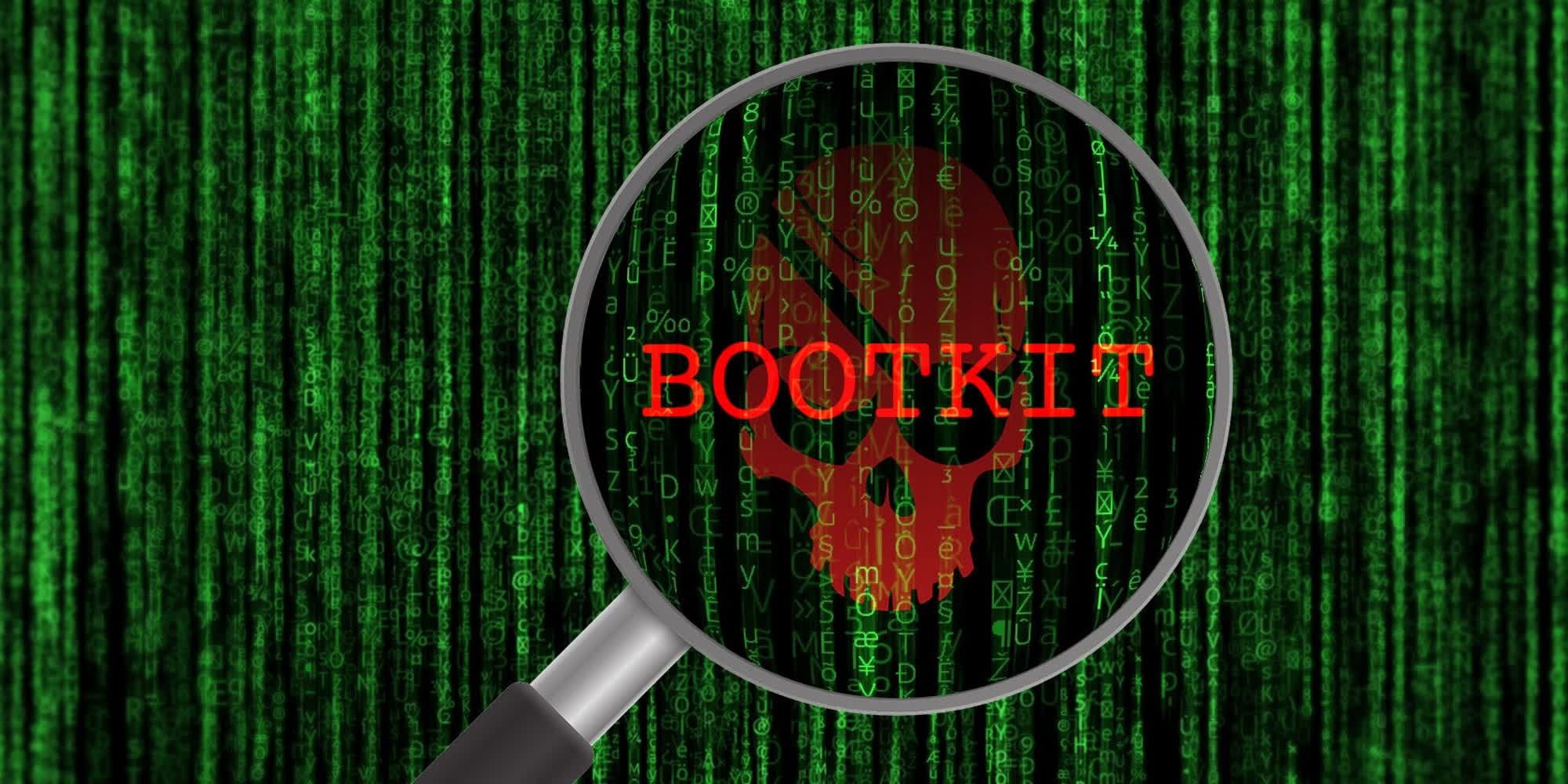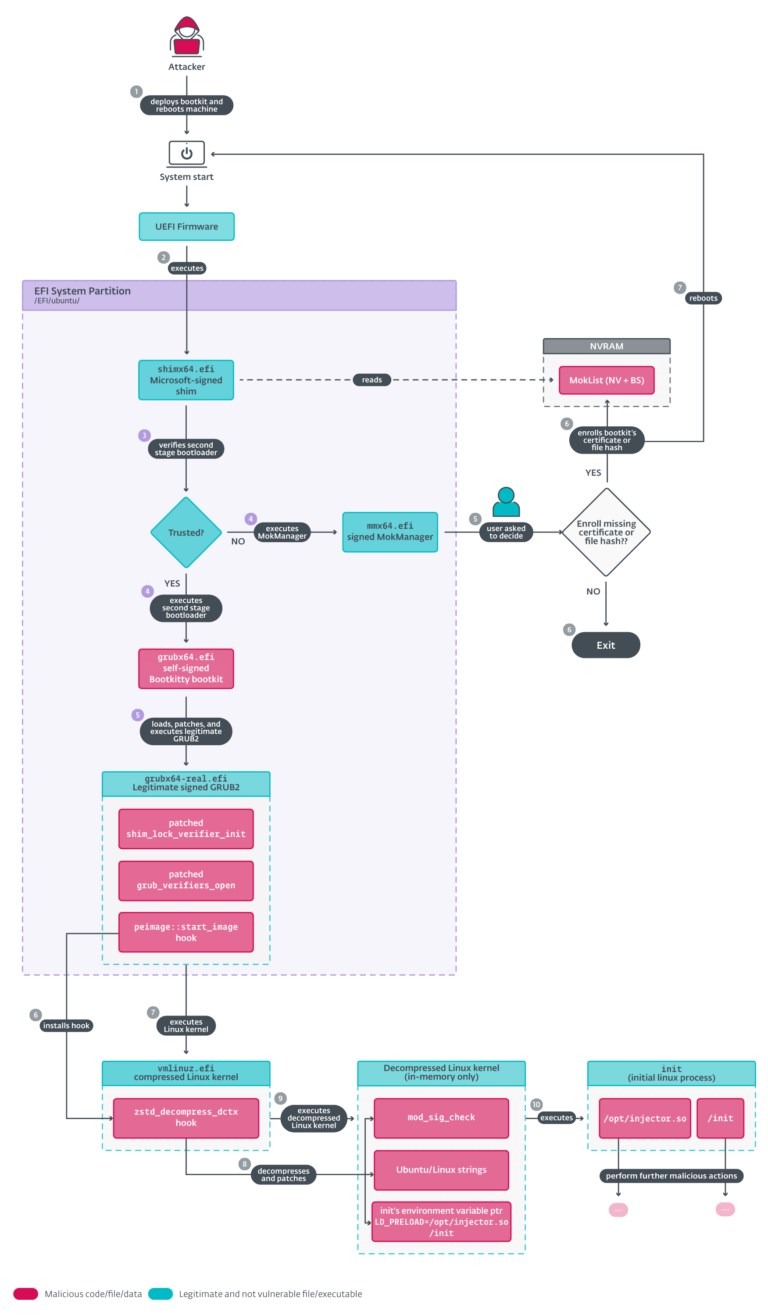
See Full Size
The bootkit era for Linux begins
Bootkitty is defined as UEFI bootkit, a type of malware that targets the initial stage of the operating system. This type of software modifies or hijacks the startup loader to gain full control over the operating system and user applications. The porting of bootkits such as BlackLotus, examples of which we have seen on Windows systems before, to Linux creates concern in the cyber security world. Eset analysts recently discovered the bootkit in a previously unknown UEFI application (bootkit.efi) and this application has been uploaded to VirusTotal.
See Full Size
However, at this stage the software is still not fully working and its code in the process of development It is stated that . Many bugs and missing features in Bootkitty indicate that the malware is still in its concept stage. Researchers also detected a kernel module called BCDropper that may be linked to this bootkit. This module is designed to install malicious programs for the Linux kernel.
Bootkits can neutralize traditional security measures by providing deep control at the operating system level. While there has been a relatively low level of threat to the security of Linux users so far, this is changing rapidly. Although bootkits and UEFI rootkits traditionally target only Windows systems, Linux platforms are now becoming an attractive target as well.
This news our mobile application Download using
You can read it whenever you want (even offline):





